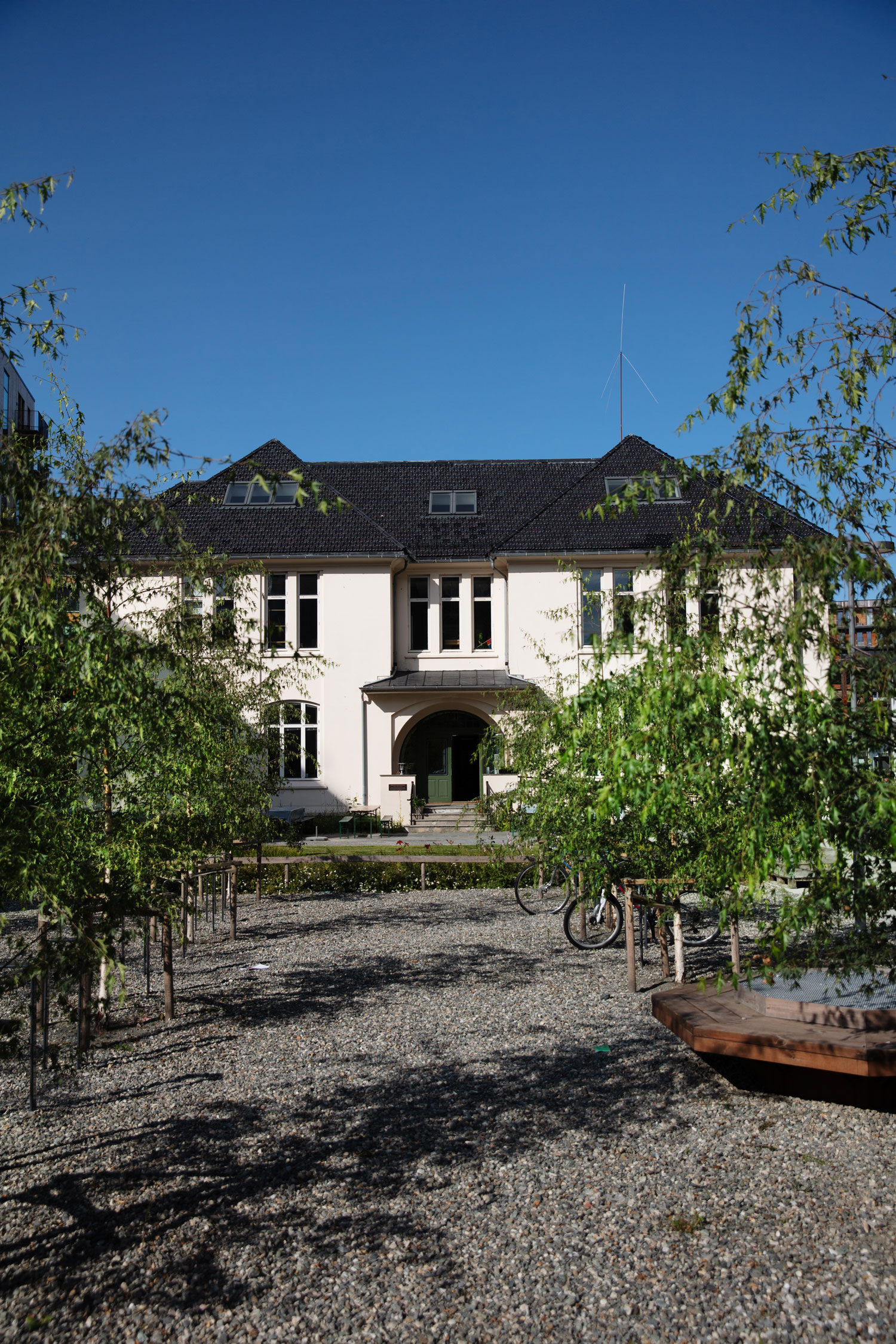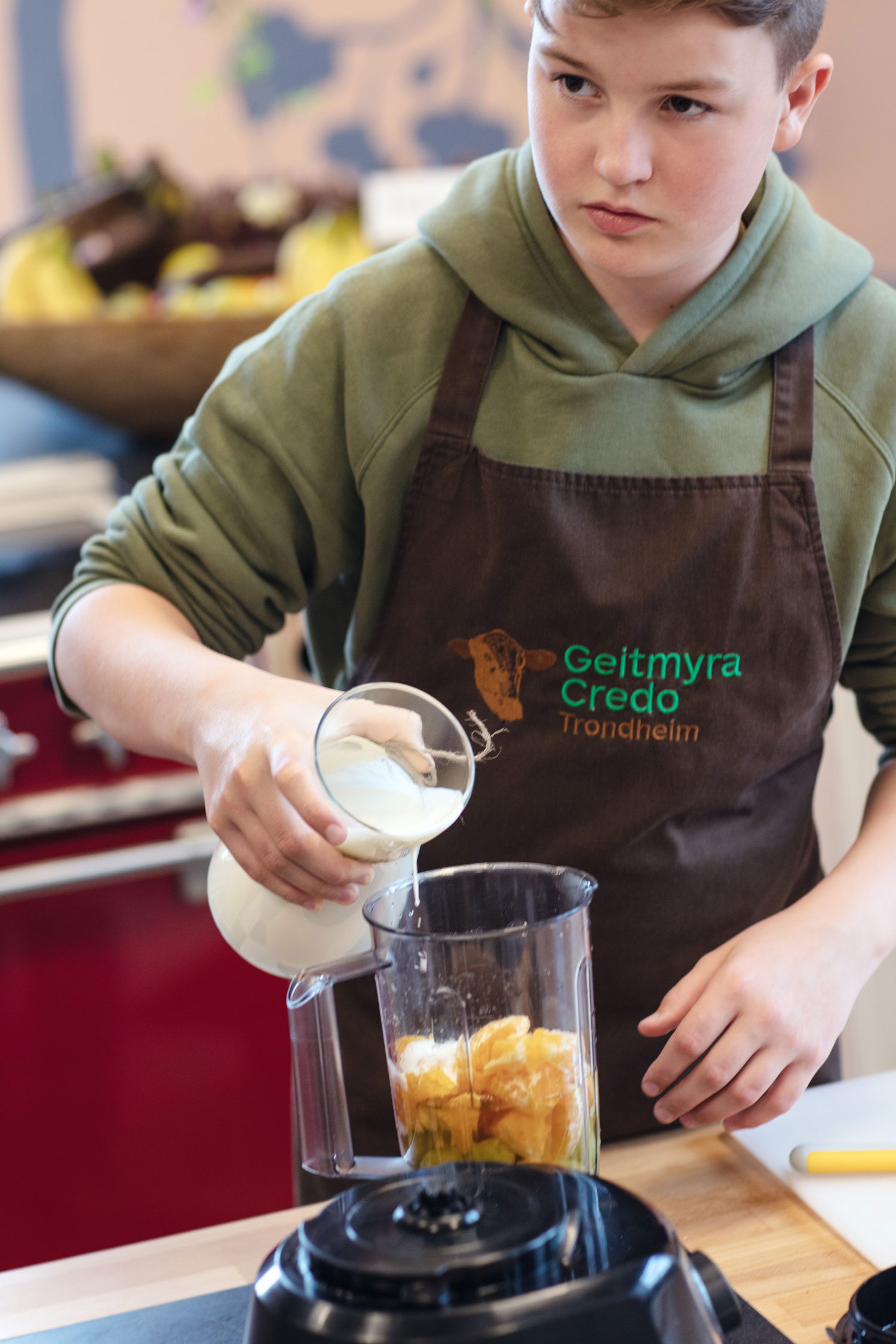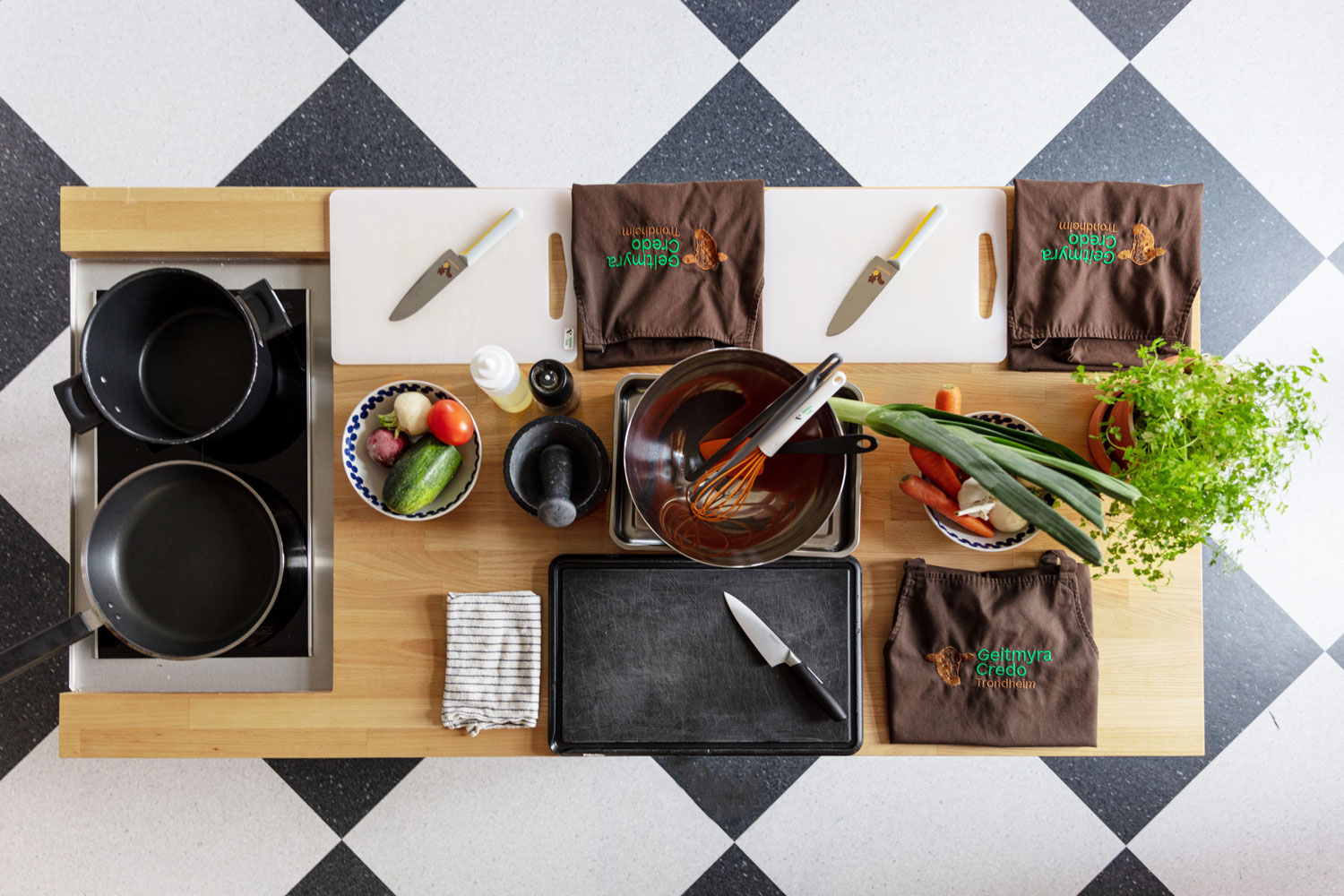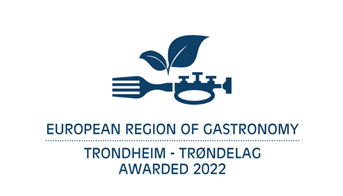At Lilleby in Trondheim, barely 100 m from the Michelin-starred restaurant Credo, you will find the Credo Culinary Centre for Children. This is where children and young people learn about good and healthy food and how they can have a sustainable approach to primary products from the sea and land.
Geitmyra and Credo naturally belong together
The original Geitmyra Culinary Centre for Children was opened in Oslo in 2011 by Andreas Viestad. The purpose is to spread the joy of food and knowledge about food to children and to provide them with a basis for making good food choices, which they can benefit from for the rest of their lives.
Geitmyra Ringsaker opened in 2018, followed by Geitmyra Kristiansand in 2019. These centres have a special focus on food from the farm and seafood, respectively.
Credo owner Heidi Bjerkan has long been known for her passionate commitment to a sustainable approach to food, the role of people in the circulatory system and our responsibility to give something in return when we harvest from nature. Along with her first Michelin star, in 2019, she also received the Michelin Sustainability Award – the first of its kind.
After visiting Geitmyra in Oslo in 2017, an inspired Heidi Bjerkan returned home to Trondheim with many thoughts and ideas about reaching out to children and young people with knowledge about sustainable food. Consequently, with Geitmyra Credo in Lilleby now fully operational, the centre is closely linked to restaurant Credo and the recurrent theme in the teaching is sustainability.

From field and fjord to table – and back
When we enter Geitmyra Credo, we meet the new centre’s general manager, Trond Erling Åm. After many years as a chef and restaurant owner in Trondheim, including experience in the National Culinary Team and at Credo, he has overall responsibility for the Geitmyra centre in Trondheim.
The educational programme for the school classes visiting Geitmyra Credo ranges from one to three days. To date, most school visits have lasted for two school days.
The programme covers basic knowledge about food, such as where the food we eat comes from, what the different parts of animals or plants can be used for, how we can best take care of the food and how we can give something in return to nature, for instance topsoil.
“The whole point is for the children to learn something practical and useful that they can grasp themselves, combined with knowledge that will hopefully make them think a bit differently about the food they eat and to see the food in a larger context,” emphasizes Åm.
An important mantra for the programme is that everything must be transferable to the home. “It should be challenging and educational, but Geitmyra is not the place where children will encounter state-of-the-art machines or learn techniques they can’t master on their own.”

Interdisciplinary approach
The programme is largely interdisciplinary. During a visit to Geitmyra, the lessons will cover topics related to history, science and mathematics, and the teachers share knowledge about everything from the origins of various spices and wild crops to the correct way to use a knife and other tools.
One popular exercise is that the children pick up food from a shop in Lilleby that has passed its best-before date. The next step is to go through all the food products with an emphasis on how the food is produced and processed and which ingredients are in each product.
“There is one eye-opening experience after another when we go through the products, especially when it comes to the shelf-life and unnecessary packaging and how specific ingredients are processed before becoming the end product we find in the supermarket,” he says.

We must start with the children
Geitmyra Credo opened in the autumn of 2020 and, as of 1 July 2021, a total of 1,650 school pupils from Trondheim municipality have visited the centre. All the lower secondary schools in the municipality have been invited and, from the autumn of 2021, the programme will be expanded to include pupils from Orkland and Åfjord.
The centre’s target group is children ranging from kindergarten age to lower secondary school. Most classes to date have been year nine pupils, but Åm is working to involve other age groups.
“The ideal would be to teach the same children when they are at kindergarten and again in years 4, 6 and 9 at school. This way we could really develop their knowledge over time about where the food comes from and how they can best utilise the raw materials while at the same time taking care of nature.”
Reaching the pupils at an early age is an important point for Åm and his colleagues. Global challenges such as littering and food waste must be addressed in a proper manner so urging the parents to change their habits is insufficient,” Åm believes.
“The real changes won’t come until good attitudes and a collective mindset are learned by the children and young people of the present day.”
If the seed for a good culinary culture – and everything that it entails – is sown early, there will eventually be many ambassadors for sustainable food management among the adults of the future. Part of the foundation for this is being laid at Geitmyra.
Written by Bård Svendsen







